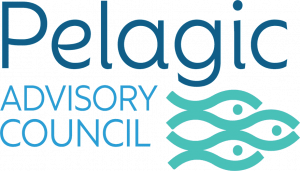| PelAC Letter on concerns regarding participation of the Advisory Councils in the process of adopting a delegated act under EU Regulation 2023/2842 | The PelAC expressed concerns regarding the process of defining the implementing act to be published by 10 July 2024 that will list the ports which comply with the rules on conditions pertaining to the landing and weighing of catches of fisheries under EU Regulation 2024/2842 regarding fisheries control. | 2024 | Letter to COM |
| PelAC letter on concerns regarding NEA Mackerel Stock Components and EU Regulation 2019/1241 | The Pelagic Advisory Council (PelAC) expressed their concerns regarding the findings detailed in the report published in March on the 2023 meeting of the workshop on the evaluation of North East Atlantic Mackerel stock components (WKEVALMAC), with outputs already included in the ICES stock advice for 2024. | 2024 | Letter to Com |
| PelAC letter on Consultation on emergency measures FR for cetacean bycatch in Bay of Biscay | On 18 January 2024, a French decree establishing the same spatial-temporal bycatch protection measures was published, and concerns all the EU fishing fleets. This decree makes reference to having consulted the relevant Advisory Councils. The PelAC hereby formally reacts on the procedure regarding this issue. | 2024 | Letter to Com Commission Response |
| Joint-AC letter on ACs stakeholder input | The Advisory Councils (ACs) thank the Commission for the increased frequency of Inter-AC meetings as well as production of written minutes and ensuring high-level Commission participation. This enhances the visibility and recognition of the important role of the ACs.
With this letter they wish to collectively share their thoughts on how to further improve the active engagement between the Commission and the ACs. | 2023 | Letter to Com Commission response |
| PelAC call for urgent planning of inter-benchmark meeting for horse mackerel | Following earlier PelAC recommendations the PelAC requests the Commission’s support in expediting the ICES inter-benchmark meeting that is jointly dedicated to the three horse mackerel stocks. | 2023 | Letter to Com Commission Response |
| PelAC letter to NWW MS Group on compliance evaluation LO report publication | The PelAC requests the NWW HLG to accelerate its decision on the matter of the publication of the report on the evaluation of compliance with the landing obligation for mackerel in NS and NWW 2018-2020. | 2023 | Letter to NWW MS Group |
| Fishing opportunities 2024 | The Pelagic AC provides recommendations on TACs in 2024 for stocks under its remit. | 2023 | Letter to Com |
| PelAC recommendation on Energy transition in the pelagic sector | Following the PelAC workshop on 20 April 2023, the PelAC sent this first advice piece to the Commission and Member States dedicated to energy transition, from the specific perspective of the fishery segment on small pelagic fish. These recommendations are the result of reflections following the material presented at the workshop and the subsequent discussions in the PelAC Ecosystem Focus Group and outline the PelAC’s views on how this transition could take form, under what conditions and what barriers would need to be addressed. We see this as a first contribution to the knowledge base and the reflections on this key new topic, with more to follow. | 2023 | Letter to Com |
| PelAC recommendation on EAFM | The PelAC developed the recommendations as set out in this letter, as a result of discussions and reflections during the PelAC workshop on EAFM organized in February 2023, which sought to identify approaches to implement EAFM in pelagic fisheries, as well as gather elements to enable further progress in relation to integrating ecosystem variables in pelagic fisheries management, and to identify knowledge gaps. The PelAC hopes the Commission will find these recommendations useful in their reflections to gradually move beyond single-species advice and to further develop the uptake of ecosystem considerations and climate driven changes into fisheries advice and management strategy evaluations. | 2023 | Letter to COM Commission response |
| PelAC advice on CFP Package | The PelAC submited its unanimous views taking a pelagic fisheries perspective. As such, the response is based on a selection of sections and actions in the documents, deemed most relevant for pelagic stocks that fall under remit of the PelAC. The PelAC hopes that this advice will help to inform the Member States on the further implementation of the actions set out in the documents and provide material for further reflections. The letter is submitted to the following Member State Goups: Scheveningen Group, North Western Waters and South Western Waters regional groups. | 2023 | Letter to Scheveningen Group Letter to SWW Letter to NWW |
